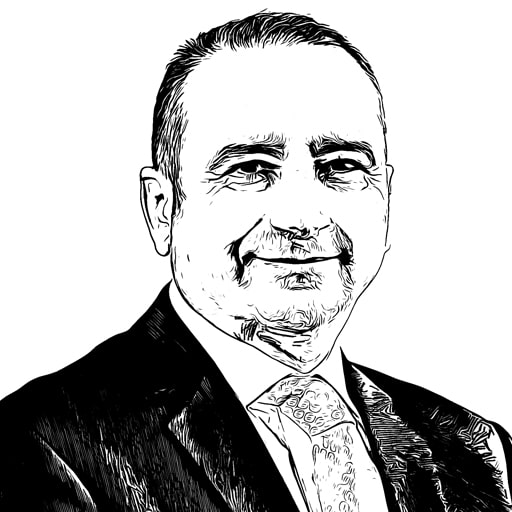Saudi Arabia’s capital markets are alive with momentum, and it’s not just about headline-grabbing Initial Public Offerings (IPOs). Follow-on offerings, where a corporation issues, or one of its major investors sells, shares on the secondary market after an IPO, are emerging as a vital area of market activity – with implications for both the Saudi Exchange and the wider economy.
The numbers tell a compelling story. In June 2024, Saudi Aramco executed its first follow-on offering after its IPO in 2019, where the Government of Saudi Arabia raised $11.2 billion in a fully marketed offering (FMO) that was the largest secondary offering in EMEA region since the year 2000, and the largest equity capital market offering in the Middle East after Saudi Aramco’s IPO in 2019.
Five months later, the Kingdom’s Public Investment Fund (PIF), in accordance with its capital recycling program, completed an overnight $1.03 billion follow-on offering of its Saudi Telecom Company (STC) shares, the largest deal carried out via an accelerated book building (ABB) process in Saudi Arabia and MENA history. ABB deals, aimed at institutional investors, eschew the roadshows and glossy prospectuses of FMOs to reduce the offering execution to a short timeframe –generally less than 48 hours.
The success of these landmark deals reflects the growing sophistication of Saudi Arabia’s equity market. Not long ago, domestic follow-on offerings in the form of FMOs or ABBs were treated with caution, however, a concerted effort by large market players and the Kingdom’s Capital Market Authority (CMA) and the Saudi Exchange have restored trust and investor appetite in these mechanisms, opening the door to fresh investment at a crucial stage of Saudi Arabia’s economic development.
Regulatory boost
The process began visibly in 2021, when SNB Capital collaborated with the CMA and other advisors to craft a framework to underpin a $3.2 billion FMO for STC – a deal that laid the foundation for subsequent high-profile transactions.
The CMA followed this up in 2023 with the launch of public consultations for the Draft Regulatory Framework to Regulate Secondary Offerings in the Saudi Capital Market. The proposed framework will be applied to both the Main Market (TASI) and the Parallel Market (Nomu), and – by enabling optimal pricing and swift execution – will likely increase both the supply of and demand for regulated follow-on offerings.
A strengthened regulatory framework for follow-on offerings joins innovations such as Special Purpose Acquisition Companies (SPACs) and Saudi Depositary Receipts (SDRs) in the Kingdom’s drive to boost stock market capitalisation and activity.

Putting Saudi in the spotlight
By raising the number of tradeable shares of listed companies, follow-on offerings boost the market’s attractiveness and increase its weight in emerging market indices. And, while IPOs often tend to allocate more to local investors, follow-on offerings are more frequently directed at large-scale investors, with a focus on international ones – as demonstrated by their visible participation in the recent Saudi Aramco FMO and STC ABB.
Saudi Arabia’s follow-on offerings, catalysed and efficient ABB execution, and a better-regulated FMO mechanism are therefore broadening the investor base.
Importantly, domestic market players are spearheading this process, with local institutions working jointly with or leading transactions alongside international banks.
This shift to Saudi-led transactions in an increasingly attractive market shows that Saudi Arabia’s financial ecosystem is not only keeping pace with global standards but also setting new ones.
Growth and diversification
Revitalised investor interest in Saudi Arabia’s follow-on offerings comes at an opportune time. The Kingdom’s Vision 2030 strategy is ushering in a new era of social and economic reform and developing an array of mega- and giga-projects. Capital requirements for such undertakings are extensive, and the government aims to attract global investment to the Kingdom to complement its comprehensive public spending program.
Follow-on offerings are important to this effort. Mechanisms such as FMOs and ABBs are also invaluable tools for institutions at the forefront of Vision 2030’s implementation, such as PIF, to recycle capital from mature assets into emerging opportunities. They also provide international investors with access to large blocks of equity stakes that would otherwise be difficult or impossible to acquire on the open market.

The prospects of follow-on offerings as drivers of Saudi Arabia’s economic growth and diversification are raised by their demonstrated efficacy in other markets. In the first half of 2024, a slowdown in IPO activity on the London Stock Exchange was offset by a surge in follow-on transactions, with 110 deals reaching a combined value of $11.5 billion– marking the highest volume since 2021.
In the US, follow-on offerings have followed a similar trend, with prominent deals including Nasdaq-listed global private markets investment firm StepStone Group’s raising of $7.4 billion in September from its fifth private equity secondaries fund.
The growth of follow-on offerings marks a new chapter for Saudi Arabia’s financial markets. With impending regulatory advancements and increasing market confidence, these transactions will remain a vital tool for fostering economic diversification, reinforcing transparency, and enabling the capital markets to support the country’s growth trajectory.









